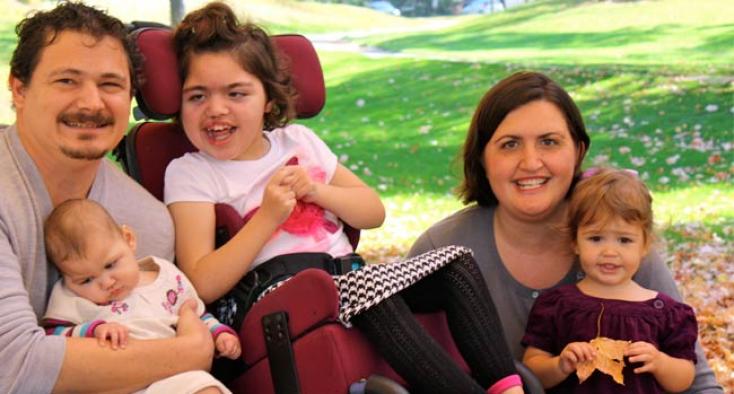In this tipsheet, you will find information on:
What is respite
Finding the right support worker
Interviewing and hiring a support worker
Training a support worker
Respite care offers families a planned short break from the demands of caregiving, helping parents/guardians recharge and fostering opportunities for all family members to participate actively in the community.
During respite, a support worker might:
- Accompany your family member to community outings (e.g., parks, restaurants, or museums)
- Teach skills like preparing snacks or engaging in hobbies
- Participate in recreational activities (e.g., sports, board games, or arts programs)
Why is respite important?
- It provides children with disabilities enriching enjoyable experiences.
- Families can re-energize to sustain healthy relationships.
- Respite may include one-on-one care with a support worker or structured programs, such as camps or overnight stays.
Qualities to Look for in a Support Worker:
Consider someone who is:
- Patient, kind, and responsible
- Creative, fun, and a good communicator
- Skilled in teaching or caregiving
Key Questions to Reflect On:
- What activities will the worker support?
- When and how often will you need assistance?
- Are there specific skills or traits you require, such as experience in sports, arts, technology, first aid/CPR, driver’s license, etc.?
Where to Look:
- Contact www.respiteservices.com about their respite worker list
- Go to www.hollandbloorview.ca/respite for more information about Holland Bloorview’s respite program
- Ask resourcecentre@hollandbloorview.ca for the ‘Community Respite Opportunities’ tipsheet
- Talk to other families about where they find their support workers
- Make a flyer or electronic posting for local high schools, colleges and universities (on their websites or in person)
- Ask someone who already knows and gets along with your family member
Step 1: Telephone Screening:
- Speak with multiple applicants to compare.
- Ask about their availability, experience, and reasons for interest in the job.
- Listen for flexibility, enthusiasm, and sincerity.
Step 2: In-Person Interview:
- First meeting: Conduct a casual interview in a public place to assess their personality and communication skills.
- Second meeting: Invite them to your home or another relevant setting to observe how they interact with your family member.
Sample Questions to Ask:
- What interests you about this role?
- What experience do you have with children or individuals with disabilities?
- Are you available on [specific days/times]?
- Can you provide references and a resume?
- Do you have a valid driver’s license or CPR/First Aid certification?
Decision-Making:
- Consider their compatibility with your family member.
- Assess their skills, dependability, and willingness to learn.
- Trust your instincts and have a back-up option.
Every child or teen has unique ways of communicating, learning, and engaging with the world. While a support worker may not immediately know the best approach, you can guide them in the right direction.
Orientation for the Worker:
- Create an “All About Me” profile for your family member with key details like likes, dislikes, routines, and health needs.
- Walk them through daily schedules and introduce relevant community resources.
- Use coaching and open dialogue to clarify expectations and address questions.
Tips for Communication:
- Set clear communication methods (e.g., in-person, email, or phone).
- Provide feedback regularly to ensure mutual understanding and growth.
Building a Strong Relationship:
- Celebrate successes: Highlight moments where the worker helped your family member learn or achieve something new.
- Offer periodic reviews: Discuss areas for improvement, additional training, or activity ideas.
- Show appreciation: Acknowledge their contributions and skills.
Empowering families with the right tools and support is key to creating positive and enriching respite experiences!
